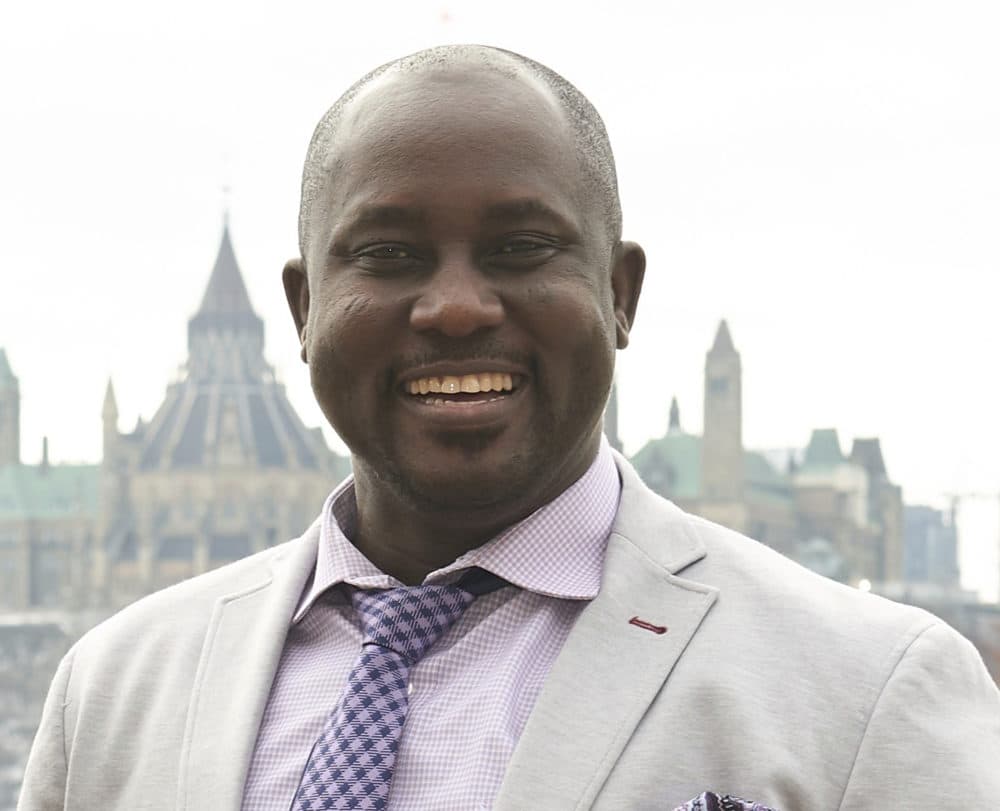Advertisement
Nigerian-Born Writer And Professor Pius Adesanmi Fondly Remembered After Ethiopian Plane Crash
Resume
Details are still emerging on the Boeing 737 Max 8 plane that crashed in Ethiopia on Sunday, killing all 157 people on board.
Meanwhile, people on two continents are mourning the death of one particular passenger — a celebrated and beloved writer with sharp intellect who found humor in the most grim, politically-fueled subjects — often about his home country, Nigeria.
That man was Pius Adesanmi, a Nigerian-born writer and Canadian professor who taught at Carleton University in Ottawa, Ontario. He was one of Nigeria’s leading public intellectuals and an internationally acclaimed author.
In 2010, he won the inaugural Penguin Prize for African Writing in the non-fiction category with his collection of essays, “You’re Not a Country, Africa!” And in 2001, his first book, “The Wayfarer and Other Poems,” won the Association of Nigerian Authors Poetry Prize.
Adesanmi is also remembered for being an advocate for and mentor to young African writers and creatives.
His longtime friend and novelist Okey Ndibe (@OkeyNdibe) confirms this. Pius was “deeply concerned” about young Nigerians, Ndibe tells Here & Now's Lisa Mullins. Adesanmi believed young people were “held in a vice by their geriatric class that has occupied the top levels of the political space,” he says.
The geriatric class in Nigeria, as Ndibe explains, is the “men and women who have little education but who nevertheless present themselves to head the political destiny of a country which has the largest population in Africa.”
He says Adesanmi felt passionately about how the geriatric generation of Nigerians “facilitated deflowering of [the] creative agency in young people, especially, on what [Adesanmi] called broadly, the African humanity.” Adesanmi brought this message to his 2015 TED talk titled “Africa Is The Forward That The World Needs To Face.”
Ndibe says, “Pius always found it ironic and paradox that in a country with some of the best intellects in the world, some of the best writers, and intellectuals and scientists and medical doctors and surgeons, that [they] would always settle for mediocrity when it came to political leadership.”
In fact, Adesanmi addressed this in his final column just days before he died, where he analyses the “conceptual normalcy” of “cynical” campaigns currently happening within Nigerian politics, specifically in relation to the country’s upcoming gubernatorial elections.
“I have drawn this profile not because I have hope for change,” Adesanmi wrote. “Sadly, I think our people have been psychologically defeated and have come to accept and love these things about Nigeria. They turn on whoever tries to awaken them. Nigeria’s irresponsible rulers have us where they want us.”
Marcelle Hutchins produced and edited this interview for broadcast with Todd Mundt. Serena McMahon adapted it for the web.
This segment aired on March 13, 2019.


